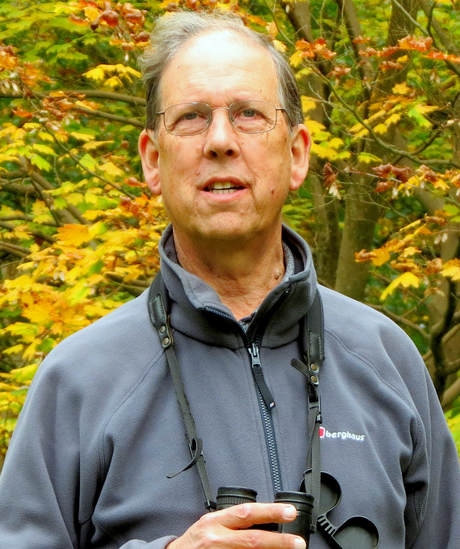In a recent study, Bastian Herre, Esteban Ortiz-Ospina and Max Roser assessed the state of democracy across the world. Among their key findings are that ‘the world has become much more democratic over the last two centuries’; ‘many democracies are less than a generation old – Dictatorship is far from a distant memory’; and ‘the world has recently become less democratic’. Illustrated with numerous charts and graphics, the data shown are valid till 2022.
I was particularly interested to note the authors’ statement, based on their studies, that: ‘Democracy gives citizens the right to influence important decisions over their own lives and allows them to hold their leaders accountable. But it can have other benefits too: democratic countries seem better governed than autocracies, seem to grow faster, and foster more peaceful conduct within and between them.’
Frank Buchman, who started Initiatives of Change (previously Moral Re-Armament) saw it as ‘the way of an inspired democracy’. In a broadcast from the MRA centre in Caux, Switzerland, he said, ‘Democracy’s inspired ideology is a life to be lived, a road to be followed. A whole new order of statesmanship is required. Cabinet Ministers to rule well must change people.’
The For a new world website is a great place to explore more about democracy, and why Buchman felt that the core values of MRA were vital for it. Putting ‘democracy’ into the For a new world search engine produces more than a thousand hits.
The purpose of this blog is not to produce a treatise on democracy but to illustrate a few of the fascinating perspectives that can be gleaned by following up some of these citations.
In a candid look at American democracy in 2004, shortly after the death of Ronald Reagan, Richard Ruffin from Virginia outlined his ideas on what was needed to strengthen democracy at home and enable America to help support democracy in other parts of the world : In a commendable moment of self-reflection, he wrote: ‘America must acknowledge that its own democracy is a work in progress. Efforts are needed to raise the alarmingly low voter turnout in our elections; to reduce the role of money at every stage in the democratic process; to make our institutions more open to the full diversity of the American people; to reconfirm our commitment to the equal protection of the laws for all detainees and prisoners of war.’
If such ideas were followed, Ruffin continued, ‘we will discover eager allies in this cause among America's six million Muslims, too many of whom feel afraid and unwelcome in the current [post 9/11] climate. Many of these are new Americans from predominantly Muslim countries where freedom languishes. If these new Americans feel fully included in the American democracy; if they observe that we acknowledge its shortcomings and are working to deal with them; if they sense we wish to work in partnership to realize hopes shared by all humanity - then they will become powerful advocates for democratic reform in their countries of origin.’
A fascinating article by Leif Hovelsen from 1989, the point where the Soviet Union was beginning to open up under Glasnost, hardly mentions democracy as such. But it has many relevant things to say through the voices of the Soviet dissidents whom Hovelsen had befriended. See: ‘A New Russia’.
Hovelsen quotes Milovan Djilas who had been Vice Chairman of Yugoslavia, President of the Parliament and one of the chief thinkers of the Communist Party. Having got into conflict with the Party, he was imprisoned for several years.
'It is not possible to force change on people,' Djilas told Hovelsen. 'Men and women can't be forcibly structured, whether by Stalin's decrees or Gorbachev's perestroika. The belief that by changing the conditions of life one can create a new man, a pure race, a pure class or an exceptional people is not only an illusion and an ideological fabrication, but leads directly to a spiritual vacuum and to tyranny.
'The structure of the Communist Party,' he went on, 'is monopolistic and totalitarian. Communism is contrary to human nature, because human nature is pluralistic. If human nature were perfect, Communism might be possible. But human nature is evil - and at the same time gentle and good. The constant struggle between different tendencies within us is essential for the existence of humanity. That means we must fight to be good and seek good ideals, but also realize that evil will always be there.'
Finally, if a blogger is allowed to cite their own work, I wrote a pamphlet at the time of the ‘Back to Basics’ debate, when John Major, the Prime Minister of the UK at the time, called for exactly that. My ‘Forward to Basics’ attempted to show that democracy functions well when ordinary people take responsibility and aim to live by high moral values. I wrote:
‘Democracy and basic values are inextricably linked. That doesn’t mean that politics can be boiled down to a few simple formulae. No two people will agree on how to apply even the values they agree on. How do you balance ‘freedom’ with ‘equality’? How do you decide what to spend on overseas aid when pensioners are hard-up or when hospital beds are in short supply?… There will always be a great breadth of opinion on all political questions—and democracy would be dull if it were not so. But where there is agreement on certain fundamental values… a basis for discussion, compromise and policy formation exists.’

